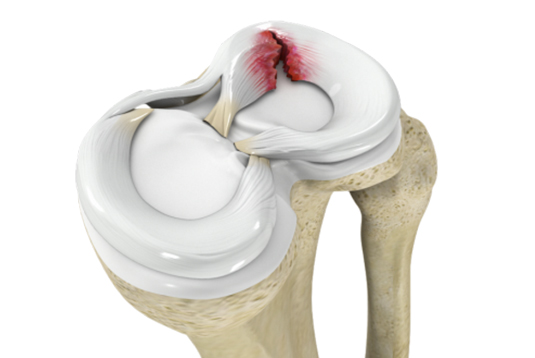
If you’ve been diagnosed with a meniscus tear in your knee, you might be thinking surgery is your only option.
After all, it’s torn - how else could it possibly get better? This is one of the most common myths I hear patients that come in with knee pain related to a meniscus tear at CLS Health Sports Medicine in Houston, and I'm here to set the record straight.
Not All Meniscus Tears Are the Same
The meniscus is a C-shaped piece of cartilage in your knee that acts as a cushion between your thigh bone and shinbone. It can tear during sports, twisting motions, or gradually over time due to wear and tear.
But not all meniscus tears require surgery - especially when they’re small, stable, or located in certain areas of the meniscus.
The outer third of the meniscus, known as the “red zone,” has a good blood supply. Tears in this area are more likely to heal naturally with conservative treatment. The inner portion - the “white zone” - has poor circulation, but even tears here don’t always need surgical intervention, particularly in older adults.
Conservative Treatment Can Be Highly Effective
At CLS Health Sports Medicine, I often begin with a non-surgical approach for meniscus injuries, especially if you’re not experiencing locking or catching in your knee.
This can include:
Physical therapy to strengthen the muscles around the knee
- Activity modification to reduce stress on the joint
- Anti-inflammatory treatments, such as ice, NSAIDs, or guided steroid injections
- Structured return-to-sport and return-to-work programs to rebuild confidence and function
Many of my patients in Houston and surrounding areas are able to return to daily activities and even sports and work without ever needing surgery.
Surgery Doesn’t Always “Fix” the Problem
Here’s what surprises most people: surgery for a meniscus tear often means removing the damaged portion of the meniscus (a procedure called partial meniscectomy).
While this can reduce pain short - term, it also reduces the cushioning in your knee - potentially leading to arthritis down the road.
In fact, several high-quality studies have shown that physical therapy alone can be just as effective as surgery for many patients, especially those over 40 with degenerative tears.
When Is Surgery the Right Choice?
Surgery may be appropriate if you’re experiencing:
Persistent locking or catching
- Severe pain that doesn’t improve after several weeks of rehab
- An unstable knee that affects your mobility or athletic performance
But the key is making that decision with an orthopedic sports medicine specialist who understands your goals - whether it’s returning to marathon training or simply walking without pain.
You don’t need to rush into the operating room. If you’ve been told you have a torn meniscus, come see Dr. Javier Rios MD, Houston's Nonsurgical Orthopedic and Sports MD at CLS Health Orthopedic and Sports Medicine in Houston.
Dr. Javier Rios MD will help guide you through a personalized treatment plan and help you avoid unnecessary surgery whenever possible.
Ready to get back on your feet?
Contact us today to schedule your evaluation and explore your non-surgical options for knee pain and meniscus tears.











